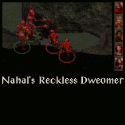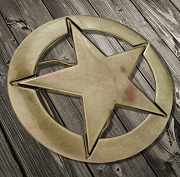|
OtspIII posted:It's two conflicting design visions, is the thing. I have a soft spot for 'the dice decide what kind of character you will play', but it's basically the exact opposite of the mindset that introduced character customization tools like feats/etc. Mixing the two is just frustrating. Yeah it really is. I would love a dnd that did that roll to see what you are system a bit better but the way ability scores work to begin with just makes that incompatible.
|
|
|
|

|
| # ? Apr 26, 2024 17:02 |
|
Jimbozig posted:Because it's just one more thing you have to think about at character creation! When you pick your stats, you have to plan almost your whole build in advance just to meet feat prereqs and now you'll have to decide in advance what MC options you want open. If you're just doing charop minmaxing lonelyfun then it's great, but if you want to actually make a character and then play it then it sucks. Everything is too frontloaded. It doesn't seem anywhere near the level of feat prereqs and the bullshit that entails. Of course this is predicated on them holding to the idea that their "relatively low" is "high enough that you can reasonably use both sets of class features without one of them being total poo poo" and not "chokingly high so as to drown out weird characters", but realistically it's not too hard to poke one value in the right direction if you're going to want the option open. If we're going with the assertion that the rogue who suddenly wants to take a level in cleric mid-campaign for fluff reasons is a pretty rare thing if not bordering on a myth, who's doing this theoretical jaunt into left field from their initial setup that's in no way conducive to it? Frontloading is bad and all but this isn't some obscure massive system mastery concept where if you don't plan for everything up to and including the top thing in the feat tree you're aiming at you'll probably never get it, this is "maybe have int if you want to be a wizard later, and if you don't you're probably going to be a poo poo wizard anyway so it's most likely for the best." Also maybe I expressed myself wrong in my initial post, let me be clear that I'm not defending the idea of ability score limits - in fact I'm all for getting rid of multiclassing period - I'm trying to understand what meaningful point the stat limit to specific kinds of multiclassing serves. It's not going to stop anyone who actively wants to make an exotic multiclass unless those values are prohibitively high enough to prevent such a character from reasonably existing with any positive quality of life, and it'll make the aforementioned "rogue who gets religion" thing happen even more rarely. It seems like they're trying to wrangle ability scores into making weird 3.5 seven-class builds not feasible anymore but it's really not going to work for that. It's more mechanics that will amount to little in practice, the "charop minmaxing lonelyfun" type is barely going to be slowed down by this. Speaking of the specific prohibitiveness of the limits, the FAQ makes it seem like this is a known thing, are there values kicking around anywhere or is this under an NDA or something? AlphaDog posted:I think I'd wholly prefer no multiclassing at all, but it's hardly the stupidest thing in Next. I'm not really worried about it, since it's just going to end up like the AD&D racial level limits or race-typed multiclassing or whatever anyway - something people widely ignored and a few now don't remember at all. Yeah, if this makes it to the final cut it'll probably be widely ignored. The 3.5 powergamers they're trying to attract with this love their line-item multiclasses to death.
|
|
|
|
OtspIII posted:It's two conflicting design visions, is the thing. I have a soft spot for 'the dice decide what kind of character you will play', but it's basically the exact opposite of the mindset that introduced character customization tools like feats/etc. Mixing the two is just frustrating. Yeah, rolling is cool if each possible class the dice pick for you is playable and effectual. Or, alternatively, takes no time to prep a replacement when you inevitably die from being so gimped. That's another irony; high lethality games are supposed to be serious and gritty, but seem more prone to slapstick, hackneyed farce.
|
|
|
|
Next multiclassing has a real issue with frontloading. There is already a thing called predipping or something along those lines. Basically you start off as the class you want to dip, then multi into the classes you really want. That lets you start as a fighter that dumps strength, then multi into rogue or mage with 16 in your main stat. You net the weapon, armor, fighting style and str/con save proficiencies the fighter gets without having to lose stats to Str. Then you could go on to life as a fully-armored, tanky Enchanter with Aura of Antipathy to give disadvantage to all incoming melee attacks. Yeah, that's a thing.
|
|
|
|
ritorix posted:Next multiclassing has a real issue with frontloading. There is already a thing called predipping or something along those lines. Basically you start off as the class you want to dip, then multi into the classes you really want. That lets you start as a fighter that dumps strength, then multi into rogue or mage with 16 in your main stat. You net the weapon, armor, fighting style and str/con save proficiencies the fighter gets without having to lose stats to Str. Yeah, while writing that post it occurred to me that nobody said anything about ability scores for your main class. Great work, team.
|
|
|
|
One of the issues with everything being built on your stats is that it is normally just about the first thing you do, and it determines everything. You don't even start getting feats until level 3. For new players, it essentially boils down to "Alright, first, we roll your stats. Now, determine everything about your character from levels 1 through 20!" This has been a problem with both 3e and 4e as well. The only reason it WASN'T a problem in AD&D, OD&D, and Basic, is because you don't actually develop or alter your character after level 1.
|
|
|
|
And with stat requirements for multiclassing, that throws out the Mearlistic ideal of naturally evolving into a multiclass because the story led you that direction. You need to plan for a 15 in most multis and that doesn't happen by accident.
|
|
|
|
ritorix posted:And with stat requirements for multiclassing, that throws out the Mearlistic ideal of naturally evolving into a multiclass because the story led you that direction. You need to plan for a 15 in most multis and that doesn't happen by accident. At least this falls in the proud AD&D tradition of rules that most people will probably just ignore.
|
|
|
|
ritorix posted:And with stat requirements for multiclassing, that throws out the Mearlistic ideal of naturally evolving into a multiclass because the story led you that direction. You need to plan for a 15 in most multis and that doesn't happen by accident. But without needlessly restrictive char-op bullshit how would I endlessly sperg on forums about all my hypothetical characters?  Seriously though I think that pre-building poo poo is like the worst thing to come out of 3.x. 4e has some of that too but it's not nearly so bad, ad-hoc choices are less likely to result in massive character disparity. I'm all for weird character builds but the more planning required or the more power you can get out of it, the more angry I become. At elfgames. So angry. "But I want to theorycraft" seems like the worst crowd to appeal to.
|
|
|
|
ProfessorCirno posted:One of the issues with everything being built on your stats is that it is normally just about the first thing you do, and it determines everything. You don't even start getting feats until level 3. For new players, it essentially boils down to "Alright, first, we roll your stats. Now, determine everything about your character from levels 1 through 20!" This has been a problem with both 3e and 4e as well. The only reason it WASN'T a problem in AD&D, OD&D, and Basic, is because you don't actually develop or alter your character after level 1. It is the entire point of a level 1 learning point. This doesn't matter any more. The whole loving point of the no-ability and no-choice start was to prevent this. How does this get designed?
|
|
|
|
I don't mind pre-built characters existing. The only issue is when they become mandatory, or when the gap between them and spur of the moment characters becomes too big. 3.x had it the worst in both parts - PrCs and the truly bizarre requirements pretty much all of them had meant it was impossible to accidentally trip into one, so you had to build your character out from level 1. And the gap between charops and non-charops in 3e is the biggest it's ever been in D&D.
|
|
|
|
OtspIII posted:It's two conflicting design visions, is the thing. I have a soft spot for 'the dice decide what kind of character you will play', but it's basically the exact opposite of the mindset that introduced character customization tools like feats/etc. Mixing the two is just frustrating. ProfessorCirno posted:PrCs and the truly bizarre requirements pretty much all of them had meant it was impossible to accidentally trip into one, so you had to build your character out from level 1. And the gap between charops and non-charops in 3e is the biggest it's ever been in D&D. kingcom posted:It is the entire point of a level 1 learning point. This doesn't matter any more. The whole loving point of the no-ability and no-choice start was to prevent this. How does this get designed? Babylon Astronaut fucked around with this message at 10:38 on Oct 11, 2013 |
|
|
|
Dodge Charms posted:He's as good at bluffing as a Rogue. Good try, but no. Which just means he has training in the bluff skill. Which, believe it or not, can be done by any class. Nice objection, but no. Unless you're straightjacketing everyone to say "Only rogues and bards may bluff".
|
|
|
|
Babylon Astronaut posted:The bitch of it is that 3e style full-casters are the only classes that can stumble blindly through their level progressions. You cannot gently caress up your feat choice so badly that your class is knocked down a tier. It takes a master plan to level the "introductory" fighter and come out with a character that can do much of anything. This is almost true - you need to avoid anything that penalizes spellcasting levels without a really good reason for doing so, and a lot of really neat and flavorful PRCs were newbie traps that way. Granted, you'd still almost always end up better off than a fighter.
|
|
|
|
neonchameleon posted:Which just means he has training in the bluff skill. Which, believe it or not, can be done by any class. Nice objection, but no. Unless you're straightjacketing everyone to say "Only rogues and bards may bluff". kingcom posted:It is the entire point of a level 1 learning point. This doesn't matter any more. The whole loving point of the no-ability and no-choice start was to prevent this. How does this get designed? Splicer fucked around with this message at 11:59 on Oct 11, 2013 |
|
|
|
Babylon Astronaut posted:Print out pre-gens, pass them out face down. Now you have random characters that are actually viable in a campaign. Dirk the Average posted:This is almost true - you need to avoid anything that penalizes spellcasting levels without a really good reason for doing so, and a lot of really neat and flavorful PRCs were newbie traps that way. Granted, you'd still almost always end up better off than a fighter. Don't forget - you can change spells you screw up, you can't change feats you screw up.
|
|
|
|
neonchameleon posted:Which just means he has training in the bluff skill. Which, believe it or not, can be done by any class. Your goalposts have moved from "Barbarian with some exotic knowledge", and they still fail to encompass the character. EDIT: ProfessorCirno posted:Don't forget - you can change spells you screw up, you can't change feats you screw up. Except Sorcerers, they aren't allowed to have nice things.
|
|
|
|
Dodge Charms posted:He also sings as well as a minstrel, and passes climb / spot / balance checks like a roof-rat. Or mountain goat, depending on the story. So all barbarians are tone deaf. And athletics and perception are well within the boundaries of a barbarian. I'm not the one moving the goalposts. You're the one trying to invent a bed of procrustes to put my character on.
|
|
|
|
The strange wordtraps of the civilized ARE exotic knowledge to the stoic men of the wild. Duh. So far it's been Barbarian with like two extra skills.
|
|
|
|
Dodge Charms posted:He also sings as well as a minstrel, and passes climb / spot / balance checks like a roof-rat. Or mountain goat, depending on the story. Dodge Charms posted:What class is Fafhrd? (IMHO he's sort of a Bard / Barbarian / Rogue.) ritorix posted:Next multiclassing has a real issue with frontloading. There is already a thing called predipping or something along those lines. Basically you start off as the class you want to dip, then multi into the classes you really want. That lets you start as a fighter that dumps strength, then multi into rogue or mage with 16 in your main stat. You net the weapon, armor, fighting style and str/con save proficiencies the fighter gets without having to lose stats to Str. MadScientistWorking fucked around with this message at 14:20 on Oct 11, 2013 |
|
|
|
All this "how do I stat character from this fantasy book" chat is just a painful reminder of the fact that D&D is really bad at emulating the fiction it's based on. D&D has acquired so much baggage over the years that it's become a genre in and of itself. And this isn't even that new a phenomenon: D&D writers have always struggled with it. Back when Conan was statted up for a Dragon article he was not only a Fighter/Thief but also had Psionic powers thrown in so that they could model some of the things he did in the books via the game mechanics. In the end it's a pretty fruitless argument: it doesn't matter whether the Grey Mouser is a Rogue with a single level of Mage or a Rogue with a background that gives them minor magical abilities or just a Rogue trained in Arcana, because the Grey Mouser is not a D&D character (somewhat ironically, because the original Thief in OD&D was basically the Grey Mouser with a bit of Cugel in the mix. Even the sling as a Thief's ranged weapon of choice came from Lankhmar.) That's not to say that class selection should be a straitjacket: there definitely should be a way to customize your character in a way that, for an example, the Thief that was a failed apprentice Wizard could be a viable concept to play, but such concepts are better handled in a way other than Lego-block multiclassing.
|
|
|
|
I personally think it's like asking which chess piece bears the most resemblance to which historical figure. Classes are a concession to the fact that they will fail to represent all characters. Honestly, I think AD&D's multi-classing would work ok with D&D Next. Most of the melee classes suffer from dead levels that wouldn't suck so bad if you were getting spells or something every other level. By the time you got it working right you would have rolled back decades of system improvements though.
|
|
|
|
Dodge Charms posted:Except Sorcerers, they aren't allowed to have nice things. In 3.5 at least they actually did have some (limited) degree of retraining for known spells, so not even.
|
|
|
|
Babylon Astronaut posted:I personally think it's like asking which chess piece bears the most resemblance to which historical figure. Classes are a concession to the fact that they will fail to represent all characters. DnD needs to make up it's mind and decide to either emulate a very specific world and provide archetypes for that world only, or detach itself from it's supposed ur-fantasy fluff to the point where every class can be reskinned in ways that allows you to create any kind of character.
|
|
|
|
I think a lot of it is on the weird fan-echo-chamber wherein they perform all this weird exegesis across all editions. My favorite is "because D&D had no rules regarding role-play, it encouraged free form role-play." Another one is the camp that believes D&D revolved around non-gridded, abstract combat because even though early editions used map distances and later ones delineated everything in 5ft increments, some editions used yards and feet. D&D having no default setting as a schism is something I've only noticed after d20 claimed it was a universal system, when clearly it is D&D and its trappings with the serial numbers filed off. D&D has a default campaign world in the core books for all the editions I can think of, and really was never setting agnostic as fans like to claim.
|
|
|
|
Since this is still the TG Cook thread, let's talk about braising. Since Xiahou posted that beautiful Creuset French oven (Or Dutch Oven if you favor the east coast), my mind has been wandering back towards braised meats. Because the French Oven is the perfect vessel to go from stovetop to oven, it's great for braising meats, because you can sear on the stovetop then let it slowly simmer in the oven. My go to is beef ribs in white wine, but you can use this for Oxtail or any cut that's full of collagen that needs to break down. First thing you do is get some bacon, then take a moment to thank god we've learned how to make fat cows and no longer need to thread meat with other fatty meat to get poo poo done. Put your oven on a burner with about a tablespoon of oil, at medium heat, while you break down your bacon into meat confetti. Toss in your bacon and let it brown and melt off all that delicious piggy fat for about ten minutes then scoop it out with a slotted spoon. Put it on a plate to the side. Around this time, turn your actual oven on to pre-heat to 300 degrees F. Now, take your ribs (I generally do up about four pounds worth, but that can scale down when you're cooking for one or two), and pop them in to brown. Make sure you sear every side of them, and don't worry if you have to do it in several batches. The idea is to get a nice Maillard on the meat, not to cook it through. A minute on each end should be enough. Scoop them out and set them aside with your bacon. Now, dice an onion, some carrots, and celery or a bell pepper or whatever veg you think will go well with beef gravy. Throw that in and sweat out the onions until they get soft and translucent, then toss in about a half head of garlic. Let that cook for a minute or two. Now take your white wine, preferably dry and certainly worth less than  , and pour about a cup into the veggies. This isn't baking, measure by eye. Let that heat through and begin to simmer then add the bacon and the ribs. You may need to play Tetris to get it all in. Look at your liquid level, if it's not covering about half to two thirds of the ribs you need to put in more wine. Now slap the lid on and put your oven in the oven. Let it cook down for an hour, then take a peak inside. If you're looking a little dry, throw in some beef broth to juice things up. Give it another hour, then take the oven out. The ribs are done, plate them then put a burner on high and cook down the wine and juices until you get a gravy consistency. Pour over the ribs, and feast. Super easy, super delicious. , and pour about a cup into the veggies. This isn't baking, measure by eye. Let that heat through and begin to simmer then add the bacon and the ribs. You may need to play Tetris to get it all in. Look at your liquid level, if it's not covering about half to two thirds of the ribs you need to put in more wine. Now slap the lid on and put your oven in the oven. Let it cook down for an hour, then take a peak inside. If you're looking a little dry, throw in some beef broth to juice things up. Give it another hour, then take the oven out. The ribs are done, plate them then put a burner on high and cook down the wine and juices until you get a gravy consistency. Pour over the ribs, and feast. Super easy, super delicious.
|
|
|
|
Ratpick posted:All this "how do I stat character from this fantasy book" chat is just a painful reminder of the fact that D&D is really bad at emulating the fiction it's based on. D&D has acquired so much baggage over the years that it's become a genre in and of itself. I don't know about this. I think D&D was its own thing pretty much from the start--a game that was inspired by fantasy literature more than a game about fantasy literature.
|
|
|
|
What does the wine actually add to the ribs? I've never liked the alcohol taste that wine adds to recipes, is that all it's there for or does it also do some form of chemistry to things? I'm worried I'm missing out on something in wine-based recipes due to the taste always turning me off.
|
|
|
|
Acid. Helps break down the collagen into delicious delicious gelatin. Oh poo poo, I forgot to say you should throw in some tomatoes with the wine, both for more acid and for flavour. Also it gives a nice counterpoint to the beef juices in the gravy. If you really, really hate the taste of alcohol get a sweet white wine to use instead.
|
|
|
|
Babylon Astronaut posted:I think a lot of it is on the weird fan-echo-chamber wherein they perform all this weird exegesis across all editions. My favorite is "because D&D had no rules regarding role-play, it encouraged free form role-play." Another one is the camp that believes D&D revolved around non-gridded, abstract combat because even though early editions used map distances and later ones delineated everything in 5ft increments, some editions used yards and feet. D&D having no default setting as a schism is something I've only noticed after d20 claimed it was a universal system, when clearly it is D&D and its trappings with the serial numbers filed off. D&D has a default campaign world in the core books for all the editions I can think of, and really was never setting agnostic as fans like to claim. A largeish group of D&D grogs extend their personal experience with/takeaway from D&D (which is almost never the game as-written) and assume every non-4th edition and every other group falls somewhere close to that, and you're basically never going to convince them otherwise. Which is fine in isolation, people can have fun however appeals to them, but when these people are then being polled to define D&D using that myopic vision and their poll results are being considered something close to accurate it can be an issue.
|
|
|
|
Classes are loving weird. Chainmail was a medieval wargame that later got a fantasy supplement introducing things like dragons, pixies, dwarves, giants and liberal chunks of the Tolkein estate. Heroes were the the equivalent of about four units, and Super Heroes about twice as powerful, with interesting futures such as the ability to force enemy armies to make morale checks as though they had suffered heavy casualties just by getting within charging range. Wizards were sort of a substitution for artillery pieces, able to throw fire balls and lightning bolts that destroyed anything struck by them except for big opponents like heroes, dragons, giants, and balrogs (I did mention the Tolkein estate, right?). They also had a bunch of other fantasy spell options based on the power of the wizard like haste, slow, levitation, illusions and summoning. But when people like Dave Arneson started adapting the rules to be more about smaller groups of adventurers who ran around looting castle dungeons and fighting monsters, the Hero/Super Hero and the Wizard were powered down and turned into the Fighting Man and Magic-User classes. Some time during this process the cleric class was invented during a PvP Good vs. Evil campaign where one of the players was a vampire (named Sir Fang, because that's how they rolled back then) and another player decided to roll up a character based on Van Helsing (well, the Hammer Horror version played by Peter Cushing), which was combined with some biblical miracles and some interpretations of clergy from the middle ages. Thieves showed up in Supplement I: Greyhawk based on characters like Cudgel the Clever and Bilbo Baggins, along with Paladins who were based on a combination of Arthurian Knights and the protagonist of Three Hearts, Three Lions. Supplement II: Blackmoor introduced Monks based on the protagonist of The Destroyer series of novels (and probably owes something to the martial arts movie boom that was growing at the time). Supplement III: Eldritch Wizardry introduced the Druid based on some bits of European mythology from around the Roman era and earlier. It also introduced Psionics, which amuses me to no end ("Psionics! As much a core part of D&D as druids!" Alternatively: "Druids! As vital to D&D as psionics!"). As far as I can tell, Bards didn't show up until later (they were in the appendix of the AD&D PHB, but might have appeared earlier), but were also partly based on Celtic mythology. Similarly, barbarians were kind of weird in that they were originally based on pulp fantasy stuff such as Conan and were presented as people who stood apart from civilization, but only later had the berserker mythology bolted onto them. So we've got a sort of precedent for classes being introduced based on fictional characters and archetypes, and then 2e introduces things like Kits to modify your classes so that they better fit other fictional types, but then 3e shows up and decides that everything must be its own class, so we get things like Swashbucklers and Samurai and the like instead of them being modifications of fighters and rogues (well, thieves) like in 2e. 3e also did this weird thing that no other edition had done before where they started with a mechanical concept and built a class around that. So you'd get things like the Warlock built as an exercise in at-will spellcasting and the Knight as an attempt to introduce tanking mechanics, but also things like the entirety of Magic of Incarnum which was just a general pile of new mechanics (so was Tome of Battle and Tome of Magic, which were experiments in making fighting classes more interesting and dynamic in combat, and coming up with new magical systems. 4e tried to have it both ways with things like subclasses and power builds, but also would invent new classes to fill in gaps in the role/power source grid (Avenger, Invoker, Swordmage, Warden). I'm not saying these are inherently bad ideas or anything, because carving out new territory has given players new ideas that improve their enjoyment of the game and that's great. But what makes a class instead of an archetype or kit? In a game of LEGO brick multiclassing, what are you doing when you take levels in different classes and what does it mean in the game? If you separate flavor from crunch and chance the flavor to your taste then the mechanics are merely a language you use to convey your vision of your character to the rest of the game world, but if the mechanics have some sort of game-world significance then it gets stranger because you get things like people who think "well, my rogue has found religion so I'll take a level in cleric (thus becoming a lovely rogue and a lovely cleric)" or "well, I don't have rage, therefore my fighter never gets angry in a fight." But either way, what new content do you issue and how do you do it? It's an interesting problem.
|
|
|
|
I've sort of liked how the Diablo series just grabbed a handful of iconic classes that were broad enough to do a serviceable job of covering multiple archetypes. Then you specialize to taste.
|
|
|
|
Apparently there was another R&D live game, earlier today: http://www.wizards.com/dnd/Article.aspx?x=dnd%2F4dnd%2FlivestreamLQB4
|
|
|
|
LightWarden posted:Classes It'd be less interesting and more easily solved if they'd stop doing stupid poo poo like "role / power source grid". There's no martial controller or arcane defender or whatever? So loving what? If you have 4 power sources and 4 class roles, it's ok to not have 16 total classes. You don't need to draw a grid and fill it in. The only people who care if you don't are people who line up their model trains by manufacturer, then type, then year, and stress out because Buttfuck Railworks never released a diesel shunter in 1972 and now there's a hole in their loving shelfspace labelled "Buttfuck Railworks, Shunter, Diesel, 1972" that will never be filled and not leaving the blank spot would just throw the shelfspace system out and
|
|
|
|
Usually people recommend defining classes by what they do and how they do it, but then we have to contend with "magic does everything" and welp At least the grid was/seems like an attempt to pigeonhole class capabilities.
|
|
|
|
That's what I was getting at though - pigeonholing class abilities is great, but you don't need to draw a 5x5 (or whatever) role/source grid and then fill in all the squares. If there's no design space for "arcane leader" or "martial controller", then you can leave it the gently caress out and nobody will care except the spergiest of spergs. If your grid helps you come up with something new and cool, that's great! If your grid means that you've halfassed 2-3 stupid sounding
|
|
|
|
Alternatively, subclasses can (should?) be a way of ascribing more than one role to the same class. Dude who defends by hitting things with weapons and dude who strikes by hitting things REALLY hard with weapons needn't be 2 full classes.
|
|
|
|
LightWarden posted:but also would invent new classes to fill in gaps in the role/power source grid (Avenger, Invoker, Swordmage, Warden). I would like few classes, with one choice to make at each level, and simply a more broad resolution mechanic. I think the system its self demands you take levels in "Swings on Chains Guy" to have any chance of being able to swing on a chain and fight someone, as opposed to just letting you write "I can Swing on Chains, and do Other Stuff Good Too" on your sheet when you level and roll with it. If I remember correctly, Chain Man from 3rd Edition even forced you to be evil alignment, so you even had to be a specific type of person to be the chain swinging fighty guy. I'm not sure if Next is doing better at this, or if it is just confirmation bias because the supplement bloat has yet to start. I have a suspicion that at least one of the massively game changing rules expansions they have promised gets canceled, and at least one of them becomes core. 
|
|
|
|
P.d0t posted:Apparently there was another R&D live game, earlier today: I anyone actually going to bother watching it? I've got Agents of Shield to catch up on...
|
|
|
|

|
| # ? Apr 26, 2024 17:02 |
|
AlphaDog posted:That's what I was getting at though - pigeonholing class abilities is great, but you don't need to draw a 5x5 (or whatever) role/source grid and then fill in all the squares. If there's no design space for "arcane leader" or "martial controller", then you can leave it the gently caress out and nobody will care except the spergiest of spergs. I actually like the role grid. And to an extent the power sources being listed on it. There is a problem when the designers think they have to fill every role combo. But I think that having the roles around forced the designers to at least give the Rogue and Fighter something to do. It also scaled back the Wizard, Cleric, and Druid into actual pillars of the game instead of "does magic". It also influenced thinking towards the creation of things like Warlords, which is a fun class and the Invoker, which I'm not sure how mechanically strong or popular they are but I enjoy them. The last time I tried to play something like that I got saddled with 3.5's Favored Soul.
|
|
|

























